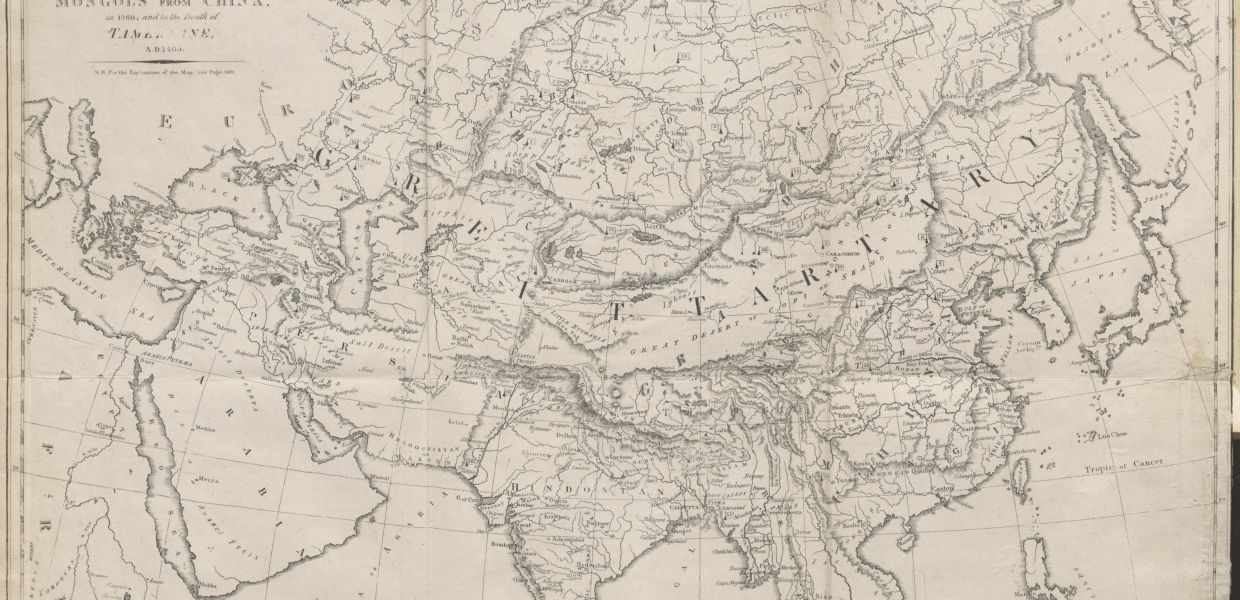We have updated the Data Exchange Agreement
The Europeana Data Exchange Agreement (DEA) is the legal agreement that structures the relationship between Europeana and its data partners. In this post, we announce the publication of an updated version.

- Title:
- Map from "Historical Researches on the wars and sports of the Mongols and Romans (...)"
- Institution:
- British Library
- Copyright:
- Public Domain
The first version of the DEA was introduced in 2011 as a central pillar of the Licensing Framework. Since then, we have concluded the agreement with hundreds of data partners, enabling the publication of over 58 million digital objects from over 3,500 cultural heritage institutions. Following wide consultation with data partners throughout the course of 2018, we have published an updated version of the DEA.
Why did we update it?
This update was necessary because of the new funding model for Europeana that came into place in the summer of 2018. As part of the transition to procurement-based funding, the European Commission requested that Europeana ensures that the rights Europeana Foundation receives under the DEA are transferable in the case the Europeana service gets awarded to another operator.
We took this opportunity to review the entire DEA with the aim of ensuring that it reflects the current operational needs of Europeana. We did so in close collaboration with data partners through consultation with the Aggregator Forum, and the Copyright Community. The input and feedback received through this consultation were constructive, and we were very happy to report that it was integral to helping ensure that the DEA and the proposed changes were in line with the needs and expectations of our partners.
The relationship between Europeana and data partners remains unchanged
This process has resulted in a small number of changes to the DEA that do not substantially change the nature of the agreement. The core elements of the DEA remain unchanged:
- It is up to data partners to decide how much data they provide to Europeana as along they meet the minimum requirements of the Europeana Data Model and the Europeana Publishing Framework.
- Data partners grant permission that all descriptive metadata that is provided to Europeana will be made available under the terms of the CC0 Public Domain dedication so that it can be reused without restrictions.
- Data partners also grant Europeana permission to store and make available thumbnail images to illustrate search results.
- As part of the metadata, data partners need to provide one of 14 standardised rights statements that indicate the copyright status and reuse conditions about the digital object referenced by the metadata.
So what has changed in the new version of the DEA?
The updates that we have made to the DEA fall in three broad classes.
- We have made changes that ensure that the DEA better reflects the operational reality of Europeana with regards to how we display digital objects on Europeana. (Changes to article 1 and article 5).
- Secondly, at the request of the European Commission, we have included an explicit assignment clause (article 8) that enables the transfer of rights obtained by Europeana under the DEA to a possible new operator of the Europeana service.
- Finally, we have also used the opportunity to adopt the language in line with current practice within in the Europeana network and to remove or adopt references to external parties and processes that no longer exist (articles 1, 2 and 9).
Read more about the changes, in detail.
What does this mean for data partners?
Existing data partners can continue contributing to Europeana as they have already signed the DEA (or an equivalent agreement with their aggregators).
As of now, new data partners are invited to sign the 'updated' agreement, available on our website.


